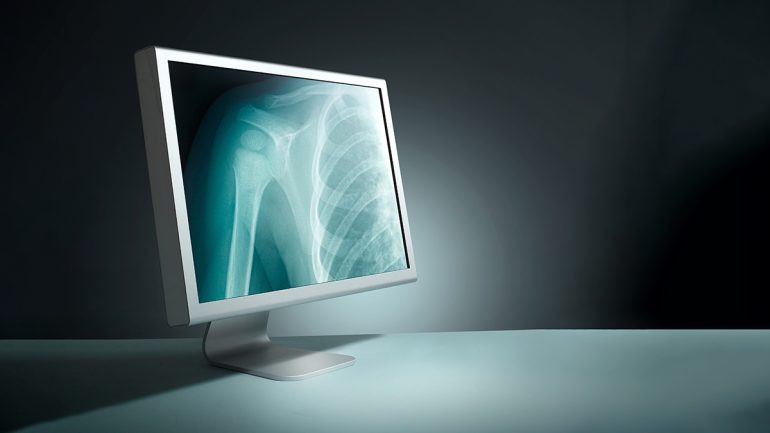- Microsoft partners with Mass General Brigham and the University of Wisconsin School of Medicine and Public Health, along with UW Health.
- The collaboration focuses on advancing AI foundation models for medical imaging using Microsoft Azure AI and Nuance’s radiology applications.
- The goal is to improve clinician efficiency, reduce workloads, and enhance health outcomes by developing multimodal AI models.
- Medical imaging is a critical component of healthcare, with significant annual investment and use in hospital visits.
- Generative AI aims to address challenges like physician burnout and staffing shortages, improving accuracy and reducing wait times for imaging results.
- The partnership will involve integrating AI into clinical workflows through Nuance’s PowerScribe platform and Precision Imaging Network.
- Key figures from Mass General Brigham and the University of Wisconsin emphasize the transformative potential of AI for clinical applications and patient care.
- Microsoft’s approach includes responsible AI practices, ensuring transparency and trust in AI systems.
Main AI News:
Microsoft Corp. has announced a major collaboration with Mass General Brigham and the University of Wisconsin School of Medicine and Public Health, along with its health system partner, UW Health. This initiative aims to tackle significant challenges in radiology by advancing AI foundation models for medical imaging. The partnership seeks to enhance clinician efficiency and improve health outcomes by developing high-performing multimodal AI models on the secure Microsoft Azure AI platform. Additionally, the collaboration will extend the capabilities of Nuance’s suite of radiology applications, including new medical imaging copilot tools.
Medical imaging is integral to modern healthcare, with health systems investing approximately $65 billion annually and using imaging exams in about 80% of hospital visits for diagnosing over 23,000 conditions. Amid challenges such as physician burnout and staffing shortages, healthcare providers are increasingly turning to generative AI to alleviate workloads, streamline workflows, and improve the accuracy of image analysis. These advancements aim to reduce wait times for imaging results, enhance patient access to care, and improve overall care quality.
The partnership will focus on developing and refining multimodal data-enriched medical imaging models. By leveraging advanced algorithms, these models will assist radiologists in interpreting medical images, generating reports, classifying diseases, and analyzing structured data. Microsoft’s commitment to providing robust AI models and copilot experiences aligns with its goal of empowering global healthcare systems through advanced technology.
Mass General Brigham, UW School of Medicine and Public Health, and UW Health will collaborate with Microsoft to explore state-of-the-art AI models. Their work will involve the development, testing, and validation of these models within clinical settings. This includes integrating AI into the Nuance PowerScribe radiology reporting platform, widely used in the U.S., and the Nuance Precision Imaging Network, which automates and scales AI model use across various imaging modalities.
Keith J. Dreyer, D.O., Ph.D., chief data science officer at Mass General Brigham, emphasized the transformative potential of generative AI to address traditional barriers in AI development and clinical application. He noted that foundation models based on Mass General Brigham’s extensive data assets could shorten the development cycle for AI-driven medical software, enhancing radiologists’ efficiency and consistency.
Scott Reeder, M.D., Ph.D., chair of the Department of Radiology at the University of Wisconsin, highlighted the institutions’ commitment to leveraging technological advancements to improve patient care. He expressed enthusiasm for collaborating with Microsoft to bridge the gap between innovation and patient care.
Peter Durlach, corporate vice president at Microsoft Health and Life Sciences, expressed pride in the expanded collaborations and the collective effort to enhance imaging foundation models. He underscored the focus on delivering reliable, transparent, and secure AI solutions to improve radiology workflows and patient care.
As the field of generative AI in radiology progresses, Microsoft and its partners remain committed to responsible AI practices. Microsoft’s Responsible AI principles guide the development of AI systems, ensuring they are built with transparency and trust. The company supports its customers in deploying AI responsibly through commitments, tools, and documentation, further advancing the responsible use of AI in healthcare.
Through these collaborations, Microsoft, Mass General Brigham, and the University of Wisconsin aim to drive significant advancements in medical imaging, ultimately enhancing the quality and accessibility of patient care in a resource-constrained environment.
Conclusion:
Microsoft’s collaboration with Mass General Brigham and the University of Wisconsin represents a significant advancement in the application of AI in medical imaging. By leveraging multimodal AI foundation models, the initiative aims to address critical challenges in radiology, including clinician burnout and workflow inefficiencies. This partnership underscores a broader trend in the healthcare industry towards integrating advanced AI technologies to enhance diagnostic accuracy, reduce wait times, and improve overall patient care. The focus on responsible AI practices further highlights the growing importance of ethical considerations in AI development. As the use of generative AI in healthcare continues to evolve, such collaborations are likely to drive innovation, enhance clinical workflows, and ultimately contribute to more effective and accessible healthcare solutions.

